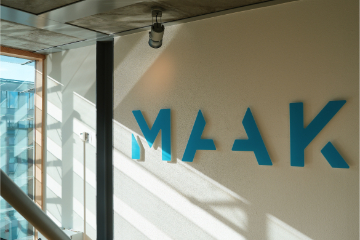
In the Netherlands, you’ll find a thorough system for food labeling that prioritizes consumer safety, transparency, and informed decision-making. The Dutch Commodities Act (Warenwet) serves as the primary law, aligning with EU standards. Food labels must include essential information like product name, ingredients, expiration date, and nutritional values. Allergens are prominently displayed, and specific regulations apply to GMOs and animal-derived ingredients. You’ll also see sustainability indicators and origin information on many products. This robust labeling system guarantees you can make well-informed choices about the food you consume. Exploring further will reveal even more intricacies of Dutch food labeling practices. Our Dutch lawyers for food product labelling explain the most important aspects.
Legal Framework and Regulations of food labelling in the Netherlands
The Dutch Commodities Act (Warenwet) forms the backbone of food labelling regulations in the Netherlands. This law outlines the essential information that must appear on food product labels. As a consumer, you’ll find that these regulations guarantee transparency and help you make informed choices.
When you’re shopping, you’ll notice that food labels must include the product name, manufacturer’s details, ingredients list, expiration date, E-numbers, and production or batch codes. These requirements align with EU standards, promoting consistency across member states.
The law also addresses specific labelling needs for various food categories. For instance, if a product contains more than 0.9% genetically modified organisms (GMOs), it must be clearly stated. Similarly, products with over 50% animal-derived ingredients must indicate their country or region of origin.
You’ll also find information on nutritional value, allergenic ingredients, and any health or nutrition claims. It’s essential to mention that only scientifically proven claims are allowed on labels.
This strict regulation guarantees that you’re not misled by unsubstantiated health promises when making your food choices.
Nutritional Information Requirements on food labels in the Netherlands
Diving into nutritional information requirements, you’ll find that Dutch food labels must provide a thorough breakdown of a product’s energy content and nutritional composition. This includes details on calories, fats, carbohydrates, proteins, fiber, vitamins, and minerals.
You’ll see these values presented per 100 grams or 100 milliliters of the product, making it easier to compare different items.
For packaged foods, you’ll notice a standardized “nutrition facts” table. This table will show you the energy value in both kilojoules (kJ) and kilocalories (kcal), as well as the amounts of fat, saturated fat, carbohydrates, sugars, protein, and salt.
Some labels may also include information on unsaturated fats, polyols, starch, and fiber.
If a product makes specific nutritional claims, such as “low fat” or “high in fiber,” you’ll find that these claims must be substantiated and meet strict EU regulations.
The label will also highlight any allergens present in the product, making it easier for you to identify potential risks if you have food allergies or sensitivities.
Allergen Labeling Practices in the Netherlands
When it comes to allergen labeling in the Netherlands, you’ll find strict regulations in place to protect consumers with food allergies or intolerances. Food producers must clearly indicate the presence of allergens on their product labels. This requirement applies to both pre-packaged foods and those sold in bulk or served in restaurants.
The Dutch regulations align with EU standards, mandating that 14 major allergens be prominently displayed on food labels. These include common triggers like milk, eggs, peanuts, tree nuts, fish, shellfish, soy, wheat, and sesame seeds. You’ll notice that these allergens are often highlighted in bold or a different color to catch your attention.
If a product contains even trace amounts of an allergen due to cross-contamination during production, manufacturers must include a precautionary statement. You might see phrases like “may contain” or “produced in a facility that also processes” followed by the potential allergen.
For non-packaged foods, such as those sold in bakeries or delis, you’ll find allergen information displayed near the product or available upon request. This guarantees you can make informed decisions about your food choices, regardless of where you’re shopping.
Sustainability and Origin Indicators on food labels in the Netherlands
Increasingly, Dutch food labels are featuring sustainability and origin indicators to help consumers make informed choices.
You’ll often see labels indicating whether a product is organic (biologisch), which must meet strict EU standards and be certified by organizations like Skal. The EU organic logo is a clear indicator of these products.
For products containing more than 50% animal-based ingredients, you’ll find information about the country or region of production. This helps you trace the origin of your food, though it’s not required for eggs and honey.
You might also notice labels related to genetic modification. If a product contains more than 0.9% GMOs, it must be clearly stated on the label. This transparency allows you to decide whether you want to consume genetically modified foods.
Some labels may feature sustainability claims or certifications, such as fair trade or responsibly sourced. While these aren’t mandatory, they provide additional information about the product’s environmental and social impact.
Always check for official certifications to verify the claims are legitimate and verified by recognized organizations.
Conclusion
You’re now equipped to navigate Dutch food labels with confidence. You’ll find essential information like ingredients, nutritional facts, and allergens clearly displayed. Don’t forget to look for sustainability indicators and origin labels. By understanding these requirements, you’re empowered to make informed choices about your food. Remember, manufacturers must provide accurate information, so you can trust what you’re reading. Next time you’re grocery shopping, take a closer look at those labels.
Food labelling law firm in the Netherlands
For any legal inquiries or support in the Netherlands, please feel free to contact our Dutch lawyers for food product labelling at MAAK Advocaten.






